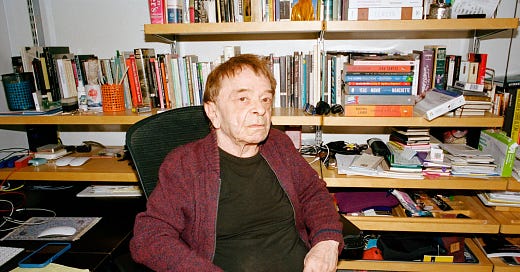Gary Indiana’s controlled uncontrol
The late writer on stumbling through projects, putting things in proximity to one another, and how not to write about Warhol
One thing all writers probably struggle with from time to time—not just writers but all creative workers, of whatever discipline—is explaining Why the Thing Is Taking So Long.
You know what I mean. The project that you thought would be done by now, that you thought would be done well before now—people, eventually, are going to ask about it. And they mean well, mostly. But the question can feel a tiny bit loaded. It can feel like they’re not only asking Why the Thing Is Taking So Long but also When Will It Be Done and also, perhaps, Why Are You Being So Difficult?
Or maybe I’m projecting. In any case, I love how the novelist and critic Gary Indiana talked about these issues, in a 2015 Bookworm interview that I listened to last week, after the sad news of his passing at age 74. Indiana was talking about his 2015 memoir I Can Give You Anything But Love, which took him four years to write—much longer than he expected. As someone who budgeted eighteen months for my current book project and is currently entering month forty-eight (oh god), I felt buoyed by Indiana’s matter-of-fact attitude to his project’s sprawl:
Keep reading with a 7-day free trial
Subscribe to Subtle Maneuvers to keep reading this post and get 7 days of free access to the full post archives.



